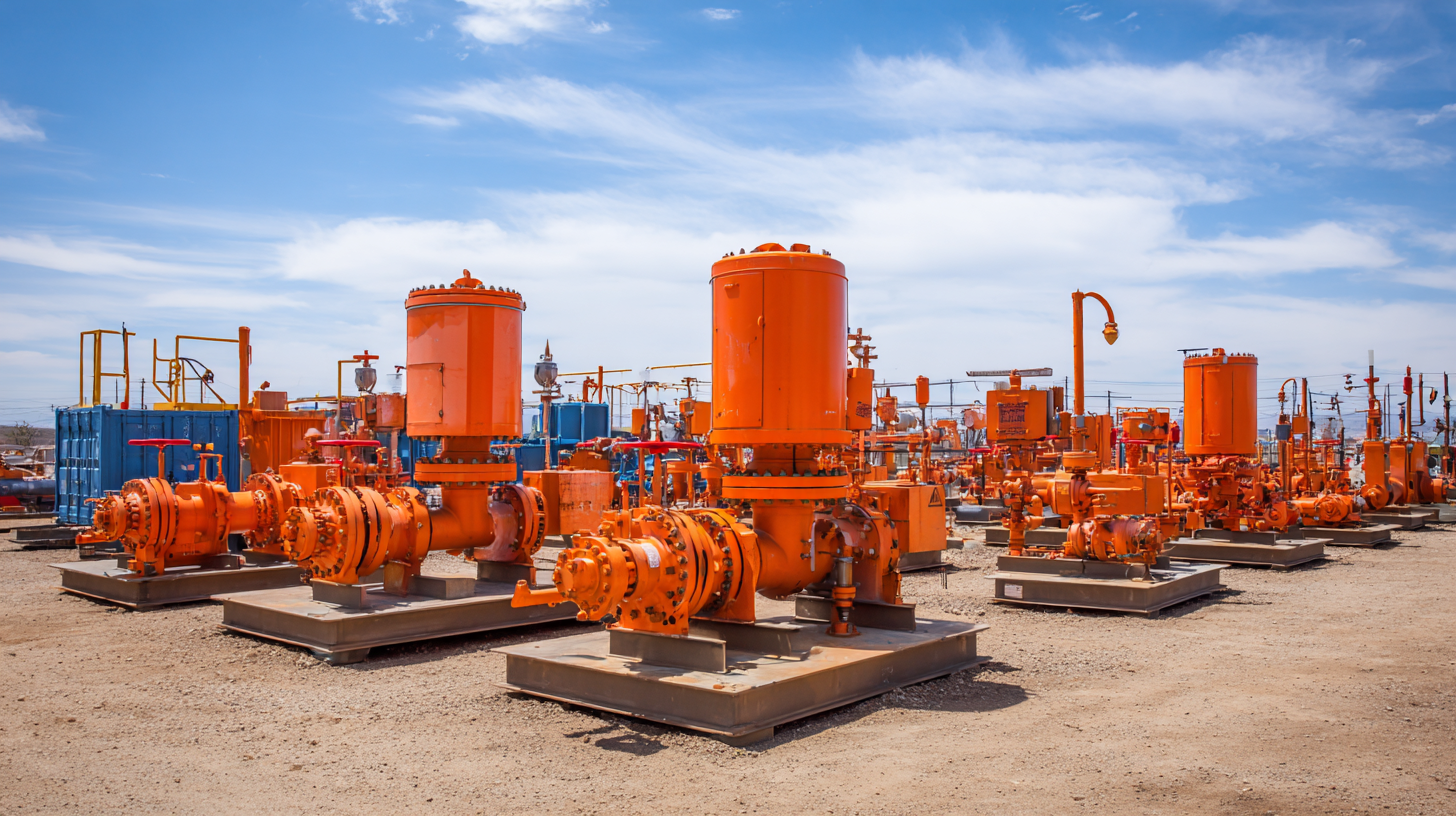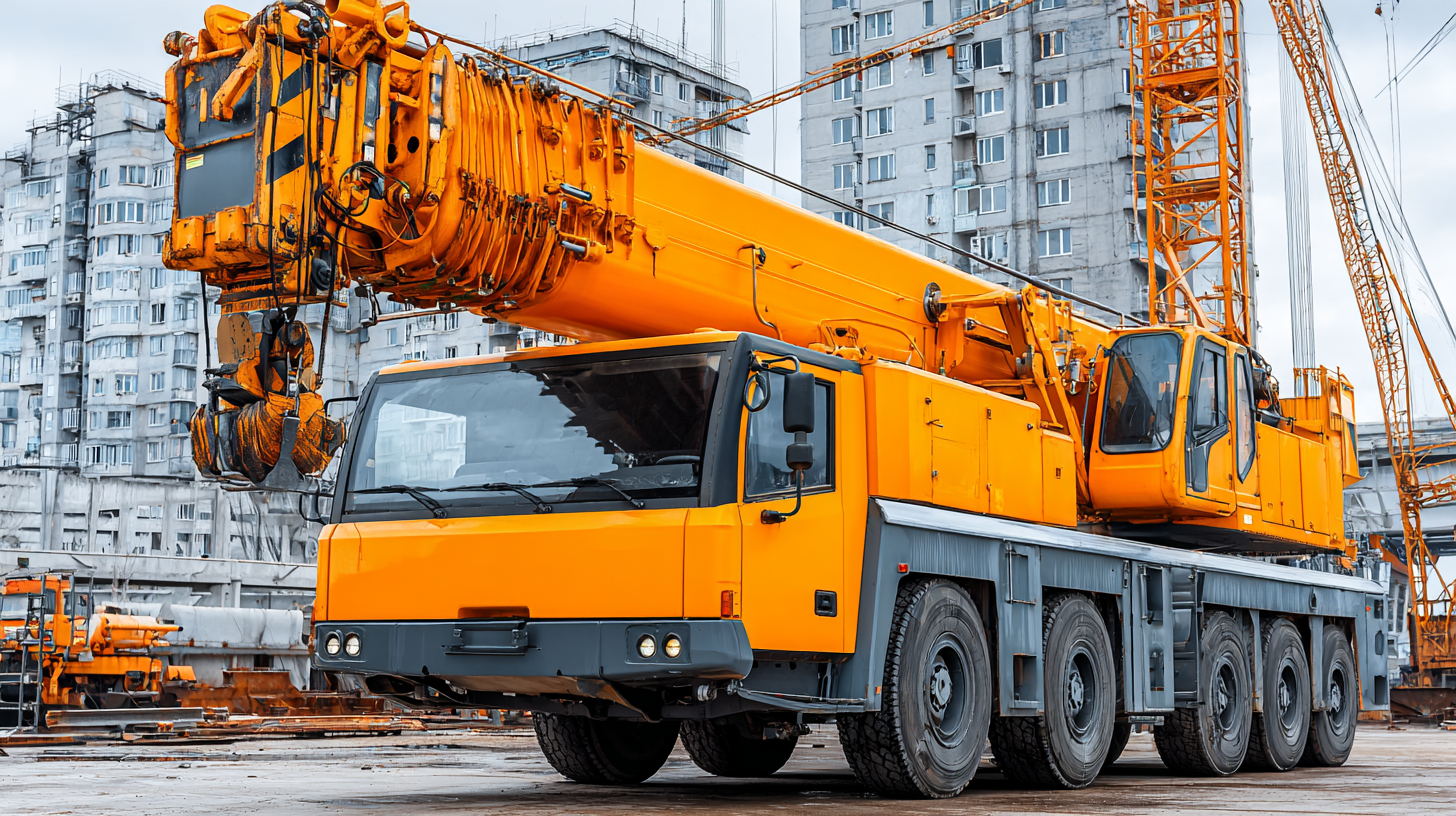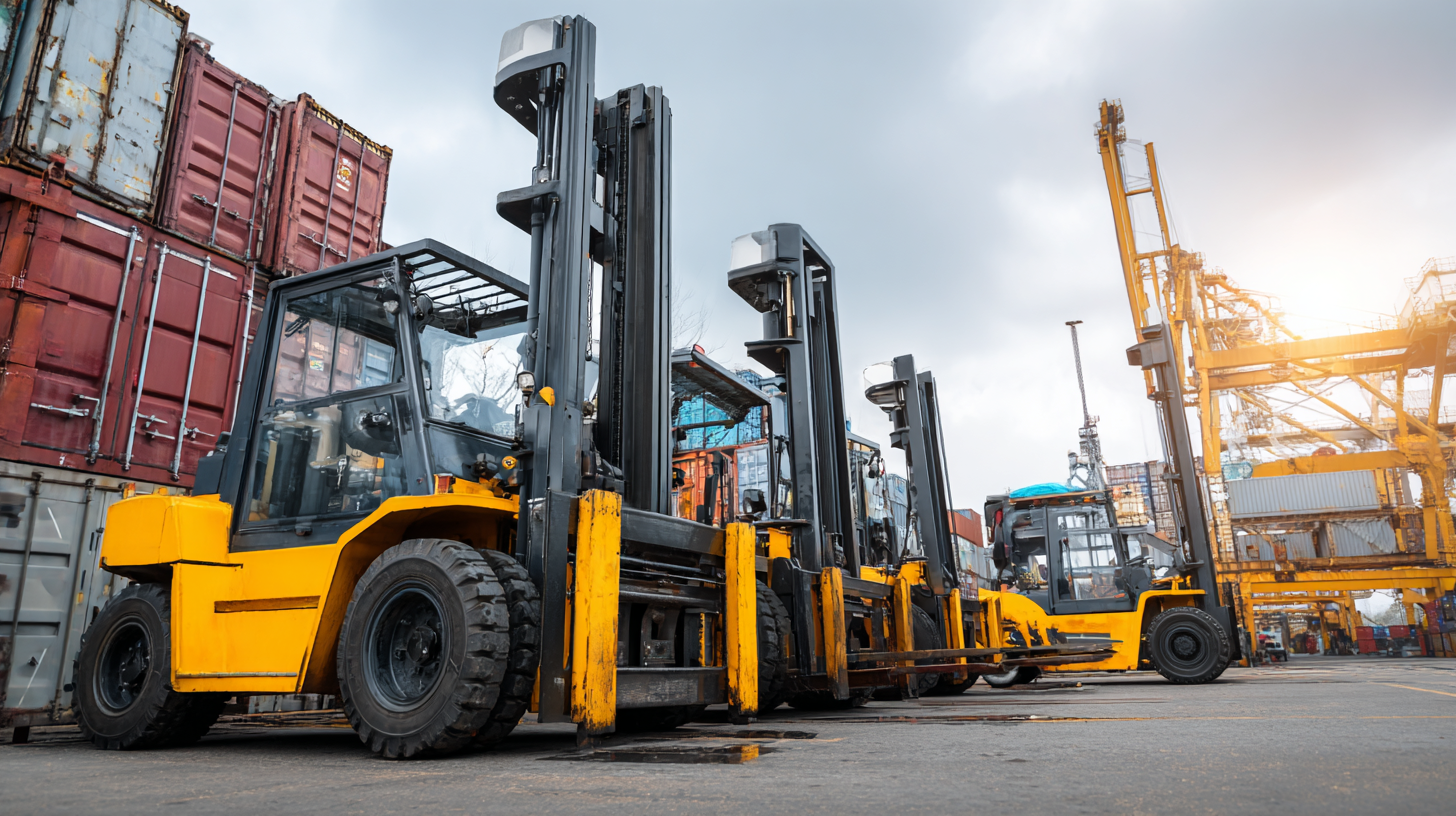Ultimate Checklist for Choosing the Best Industrial Equipment Rental for Your Business Needs
In the rapidly evolving landscape of industrial operations, the demand for efficient and reliable industrial equipment rental has surged, with the market projected to reach $48.7 billion by 2025, according to a recent report by Grand View Research. As businesses strive to enhance productivity while minimizing capital expenditure, selecting the right equipment rental service has become critical. With the rise of technology and advances in machinery, companies often face challenges in assessing their needs and evaluating rental options. This ultimate checklist is designed to guide businesses through the essential criteria for choosing the best industrial equipment rental solutions, ensuring they make informed decisions that meet their operational requirements and strategic goals.

Understanding Your Business Requirements for Industrial Equipment Rental
When considering industrial equipment rental for your business, it's essential to have a clear understanding of your specific needs. Start by assessing the types of projects you will undertake and the essential equipment required for those jobs. For instance, if you’re focusing on construction, consider the necessary machinery, tools, and whether they can handle the scale of your operations.
**Tips:** Always prioritize equipment that meets your project's specifications to avoid inefficiencies. Conduct a thorough comparison of rental options in your area, keeping an eye on newly opened businesses as they may offer competitive pricing or unique equipment not available elsewhere.
Additionally, take into account the duration of your rental. Short-term rentals may suffice for quick projects, while long-term contracts can be more economical for ongoing needs. Don’t forget to check the rental company’s support and maintenance services, as reliability can significantly impact your business operations.
**Tips:** Opt for companies that provide comprehensive customer support and equipment maintenance to ensure your projects run smoothly without unexpected breakdowns.
Evaluating the Quality and Reliability of Chinese-Made Equipment
When selecting industrial equipment rental, evaluating the quality and reliability of Chinese-made equipment is crucial for ensuring operational efficiency. Chinese manufacturers have made significant advancements in technology and production standards over the years, leading to a wide array of machinery that meets international specifications. It's essential to consider the certifications and testing that equipment has undergone, as well as the manufacturer’s reputation within the industry. Look for products that have been recognized for their durability, performance, and adherence to safety standards.
In addition to assessing the technical specifications, potential renters should investigate after-sales support and parts availability. Reliable equipment should not only perform well but also come with robust customer service and maintenance support. Engaging with companies that have a solid track record in servicing their equipment can mitigate downtime and enhance productivity. By prioritizing these factors, businesses can confidently choose equipment that meets their operational needs while capitalizing on the growth and innovation present in today’s Chinese manufacturing landscape.
Key Factors to Consider When Selecting an Equipment Rental Company
When selecting an equipment rental company, several key factors must be evaluated to ensure the best choice for your business needs. According to a report by the American Rental Association (ARA), the equipment rental market is projected to reach $59.3 billion by 2025. This growth underscores the importance of choosing a reliable partner that aligns with your operational goals.

First and foremost, consider the range of equipment offered. A versatile rental company should provide a wide variety of machines that meet different project requirements, from heavy construction machinery to specialized tools. Furthermore, quality and maintenance of the equipment are essential. A recent survey from EquipmentWatch revealed that nearly 70% of contractors cite equipment reliability as a critical factor, directly impacting project timelines and costs. Ensuring that the rental company adheres to strict maintenance protocols will help mitigate potential downtimes.
Lastly, evaluate the rental terms and customer service of the provider. Flexibility in rental agreements and transparent pricing structures can significantly affect your budget. According to a 2021 report from IBISWorld, 48% of businesses prioritize rental providers that offer competitive rates and exceptional customer support. A responsive and knowledgeable customer service team can guide you in selecting the right equipment and assist you in case of any issues, ultimately enhancing your rental experience.
Exploring Global Market Trends in Industrial Equipment Rentals
The global industrial equipment rental market is poised for significant growth, driven by emerging trends in modular construction, ion implantation technologies, and the increasing demand for automated transportation solutions. Forecasts indicate that the modular building market is expected to expand from $94.84 billion in 2025 to $151.53 billion by 2032, reflecting a robust annual growth rate of 6.9%. This surge is indicative of a broader shift toward sustainable and flexible construction methods across various industries.

Additionally, the ion implantation equipment market is projected to grow at a compound annual growth rate (CAGR) of 5.34% from 2024 to 2031, reaching an estimated size of $168.85 billion by 2023. This growth is bolstered by advancements in semiconductor manufacturing and the increasing demand for precision in electronic component production. Moreover, innovative services like autonomous vehicle rentals are beginning to emerge, as seen in partnerships aimed at launching the first self-driving car rental service. These developments not only highlight the dynamism of the industrial equipment rental sector but also underscore its potential as a key player in the future of business operations.
Cost-Benefit Analysis: Renting vs. Buying Industrial Equipment
When deciding between renting and buying industrial equipment, conducting a thorough cost-benefit analysis is essential. Renting can offer significant flexibility, especially for companies that only need equipment for short projects. This approach allows businesses to avoid the hefty initial investments associated with purchasing, reducing financial strain and freeing up capital for other operational needs.
Tip: Always calculate the total cost of ownership versus the rental fees over the equipment's expected usage period. Consider additional expenses such as maintenance, storage, and training for purchased equipment. If your needs are unpredictable or vary with seasonality, renting may provide a more financially sound option in the long run.
Additionally, consider the potential for technological advancements. Industries evolve rapidly, and renting ensures access to the latest equipment without the need for frequent upgrades. This can significantly enhance efficiency and productivity, giving your business a competitive edge.
Tip: Research rental companies that provide well-maintained, modern equipment and ensure they offer good customer support. This attention to service can save you time and headaches when equipment issues arise, making the renting experience smoother and more beneficial for your business.